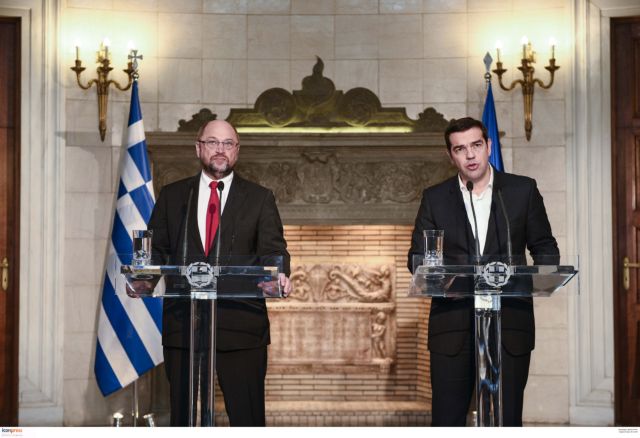The Prime Minister Alexis Tsipras and the coalition government are investing their political ambitions and hopes in the President of the European Parliament Martin Schulz, aiming towards the relaxation of creditor demands in light of the refugee crisis.
As such, PM Tsipras made an official and public association of the dramatic refugee crisis with the task of implementing the bailout agreement. The Greek Prime Minister implicitly asked for Mr. Schulz to intervene so that the creditors reduce their demands from Athens.
Mr. Tsipras specifically spoke of the need to reexamine the VAT hike on the islands and primary residence auctions. The Greek PM also claimed that those who made plans for a Grexit were “foolish”, given that they had not taken into consideration the financial and social consequences, for Greece and the cohesion of Europe itself.
This criticism is believed to have been aimed at the German Minister of Finances Wolfgang Schäuble, who was one of the more fervent supporters of a Greek departure from the single currency zone during the summer. Prior to the bailout agreement being reach, Mr. Schäuble developed a proposal including the voluntary 5-year departure of Greece from the Eurozone, in exchange for financial support.
Although Mr. Schulz commented that the Greek demands are justified, Berlin has already expressed its opposition to any attempt to link the two issues. The German Foreign Affairs Minister Frank-Walter Steinmeier recently underlined the need to implement reforms, opining that it would be best if new desires were not presented whenever new challenges emerge.





